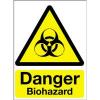Hi PetersenM,
I anticipate that the sauces mentioned are purchased ingredients for inputs.
If so, I also expect that they have Product specifications which include S.aureus ? (many micro.specs do).
if so, this would be one reason for checking this species.
A second reason could be that many routine micro.lab test menus include it anyway in view of its occasional elevation/significance. I don't recall if the toxin which S.aureus may produce is stable to baking or not, possibly depends on the temperature.
Hi all,
My concern may be slightly different to Petersen’s.
We’re currently sending 2 food samples/month to the lab for microbiological test. I understand that these microbiological tests can’t ensure food safety but it could be a helpful indication.
In manufacturing setting, the intention of sending food samples for testing is to verify it’s safety before releasing it out to the consumers.
But I'm not sure how this would apply to a small central kitchen as : -
1) We’re not testing for every food item (only 2 food items/ month out of a total of about 20 other food items we have)
2) We’re only testing it AFTER it’s production date, when some of it have already been sent to consumers. (They're vacuum-packed food items store in chiller/freezer)
If that’s the case, and if anything bad happens, wouldn’t it be too late to do anything about it?
Like if the micro lab test results indicated presence of Listeria. OR if there’s an outbreak of food poisoning …how would this routine micro lab test for only 2 food samples/ month help at all??
Just a thought.















